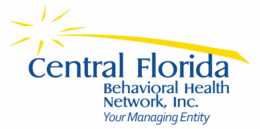Adult Programs & Services

Adult and Family
Are you seeking recovery from a mental health disorder or substance use disorder for yourself, a family member, or a friend? Or you need information to help you understand what is happening to you or your loved one.
If so, CFBHN can provide you with information, resources, and links to services to assist you on your journey. We invite you to learn more about recovery and to explore our treatment providers by clicking on our Service Locator.
Remember you are not alone!
What does recovery mean?
RECOVERY “Recovery,” defined by the Substance Abuse Mental Health Services Administration (SAMHSA), “is a process of change through which individuals improve their health and wellness, live a self-directed life, and strive to reach their full potential.”
“The process of recovery is highly personal and occurs via many pathways. It may include clinical treatment, medications, faith-based approaches, peer support, family support, self-care, and other approaches. Recovery is characterized by continual growth and improvement in one’s health and wellness and managing setbacks. Because setbacks are a natural part of life, resilience becomes a key component of recovery. SAMHSA
Recovery is possible!
The Substance Abuse Mental Health Services Administration (SAMHSA) says that there are 50.2 million American adults considered themselves to be in recovery from their substance use and/or mental health problems.
- 2 in 3 adults who ever had a mental health problem
- 7 in 10 adults who ever had a substance use problem”

Considering Treatment?
There are many services and supports available and as you choose the provider you want to receive treatment from keep in mind the following:
INDIVIDUAL RIGHTS AND RESPONSIBILITIES
Your rights are protected by law. You have the right to:
- Be treated with dignity and respect.
- Have your privacy protected.
- Have information about you, and your medical records, kept private and confidential, in accordance with the law, including the Health Insurance Portability and Accountability Act (HIPAA) and 42 CFR Part 2.
- Let others know if you have concerns about your care, or if you feel your rights have not been respected.
- Get treatment in the least restrictive setting possible.
- Take part in decisions about your treatment and recovery care and planning.
- To prepare an Advanced Directive/Psychiatric Advanced Directive that lists the mental health care that you want or do not want, and to name a person that can make decisions for you if you are unable to make those decisions for yourself.
- To learn about, and say ‘yes’ or ‘no,’ to the services you receive and the treatment team that provides them.
- To request and be referred to self-help and peer support services, people or places that can advocate for your care, a lawyer or legal help.
- To access your own records.
- While in care to access a phone to reach out to family, friends, and other supports. Having your complaints or concerns investigated by CFBHN, or others, to help resolve them. Use of a phone at any time for the purpose of reporting abuse to the Florida Abuse Hotline 1-800-962-2873, or to Disability Rights Florida 1-800-342-0823.
- Accommodations for your needs if you have a disability and if eligible, the right to register and vote in federal, state, and local elections.
- Treatment that is free from abuse, neglect, humiliation, retaliation from others, or financial exploitation.
